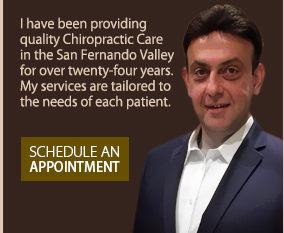| |
Dietary Changes
- Eat more raw foods. Cooking and canning destroys much of the nutrition in foods. With the exception of canned tomatoes, which can help prevent prostate cancer, fresh or frozen fruits and vegetables always have more natural vitamins and minerals.
- Select organically grown foods when possible, because they have lower amounts of toxic elements, such as pesticides and heavy metals.
- Consume 25 to 30 grams of fiber a day. Whole grain breads and cereals, beans, nuts, and some fruits and vegetables are good sources of fiber. High fiber diets can help prevent digestive disorders, heart disease, and colon cancer.
- Drink eight to ten 8-ounce glasses of water a day. Coffee, tea, soft drinks, and alcohol are dehydrators. Don't substitute them for water.
|
|
 |
 |
|
Vegetarian Diets
Research shows that a good vegetarian diet as part of a comprehensive health program can help prevent heart disease, cancer, and other diseases. However, fried foods, hydrogenated fats, and commercial meat substitutes may contain more sugar and fat than a meat eater would consume.
If you are considering a vegetarian diet, keep the following tips in mind:
- Don't rely on fruits and vegetables at the expense of grains and legumes. Eat a variety of fruits and vegetables to consume a wide range of nutrients.
- Tiredness, malaise, and anemia can be signs of deficiencies. Have your B12 and iron levels checked at least once a year.
- Consume fortified foods or take supplements to obtain the nutrients you no longer get from animal-based products, such as vitamin B12.
- Before eliminating animal products from the diet, learn to do it right. Children, pregnant and breast-feeding women, and people recovering from illness should consult their health care practitioners.
|
Supplements According to the U.S. Food and Drug Administration, dietary supplements are not substitutes for foods, nor can a person sustain good health by just taking vitamin and mineral supplements.4 When taken properly, however, supplements can play an important role in achieving maximum health. If you are considering nutritional supplements, keep the following tips in mind:
- Remember to consume dark green vegetables, oils, nuts, and seeds, which are sources of magnesium, fatty acids, and many other vitamins and minerals.
Don't "self-prescribe." Consult a health care practitioner, such as a doctor of chiropractic, to determine what supplements are best for you. If you have symptoms such as headaches, chronic fatigue, or cardiac problems, seek professional advice from a health care provider who specializes in nutrition.
Fit Into Your Genes?
Ever wished you could get some solid information on which weight loss program would really work for someone? Now you can! With DesBio’s DNA Genetique test, you can look right into someone’s genetic makeup to see what genetic propensities they may have. Some people may do best restricting carbohydrates while others respond to a low-fat diet. Some patients may be predisposed to sugar cravings while others may be more likely to overeat and have challenges feeling full.
This amazing test can show many predispositions that can be overcome to achieve weight-loss success. We’ll have real clinical stories, too, showing you how to coordinate the findings of this test with any diet program you’re using in your clinic.
Cost-Effective Weight Loss
Losing weight can be pretty expensive. Lots of programs out there involve specialized food and expensive supplements. And you just never know if the program is going to work. Is there really any way to determine, in advance, which weight loss program will provide the most effective weight loss at the most reasonable price for a particular person?
Yes! With DesBio’s DNA Genetique Weight and Wellness Profile, you can look right into a patient’s genes to see what particular weight related genetic issues a patient may have so you can tailor a program just for them. This well-researched report provides suggestions for diet, exercise, and lifestyle choices customized specifically to the information uncovered in that patient’s genetic information. For example, if your patient’s profile shows that he or she has trouble feeling full, it’s time to have a conversation about measuring food portions. Or if cravings are an issue, you could suggest some homeopathic products to keep those cravings away.
Is the DNA Genetique report expensive? Well, upfront costs can seem prohibitive. However, over the long run, it’s more cost-effective to use the correct customized tools than to try many different programs without knowing if they will work. Remember, too, that this test is a one time expense, a patient’s genes do not change over time so once the information is uncovered, it doesn’t change.
According to Charlyce Walsh, RN, BSAH, NP from Profile Weight Loss Clinic in Bloomfield Hills, MI, having this information right up front is critical to long-term weight loss success, and she’s made it a required component at her highly successful weight-loss clinic. She’s even done a cost comparison showing that by using the DNA Genetique results with the hA2cg Evolution diet program, it costs less in time and money to lose 30 pounds and maintain that loss than it does to lose 30 pounds with some of the other weight loss programs out there.
References
- Pohar KS, Gong MC, Bahnson R, Miller EC, Clinton SK. Tomatoes, lycopene and prostate cancer: a clinician's guide for counseling those at risk for prostate cancer. World J Urol. 2003 May;21(1):9-14. Epub 2003 Mar 22.
- Beilin LJ. Vegetarian and other complex diets, fats, fiber, and hypertension. Am J Clin Nutr. 1994;59(suppl):1130-1135.
- Dwyer JT. Health aspects of vegetarian diets. Am J Clin Nutr. 1988;48(suppl):712-738.
- Economic Characterization of the Dietary Supplement Industry: Final Report. In "U.S. Food and Drug Administration Center for Food Safety and Applied Nutrition" March 1999.
|
|





